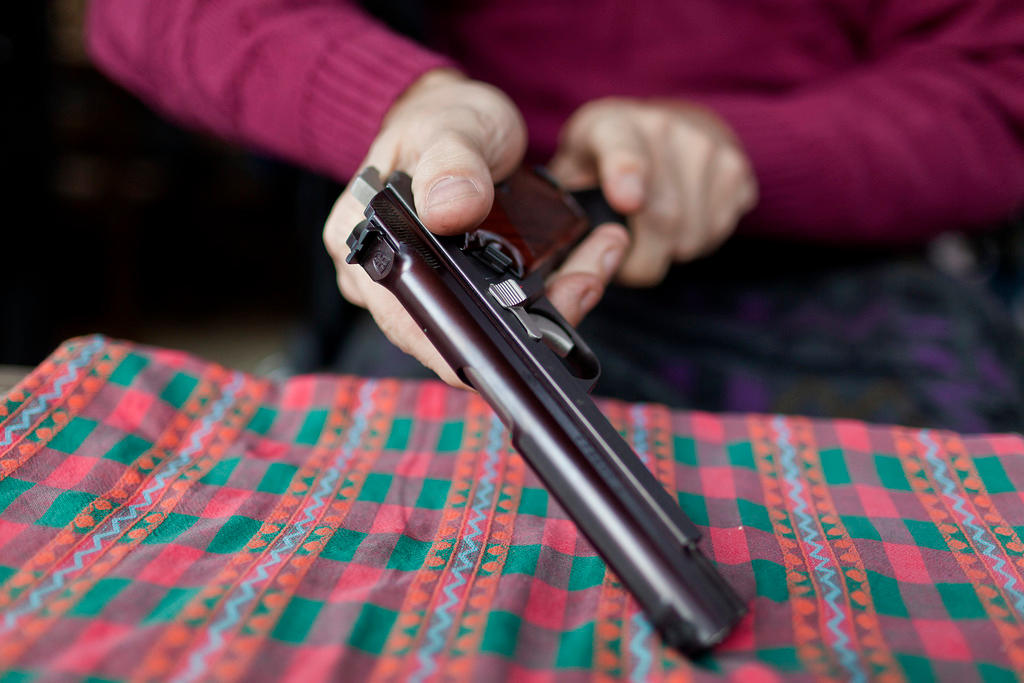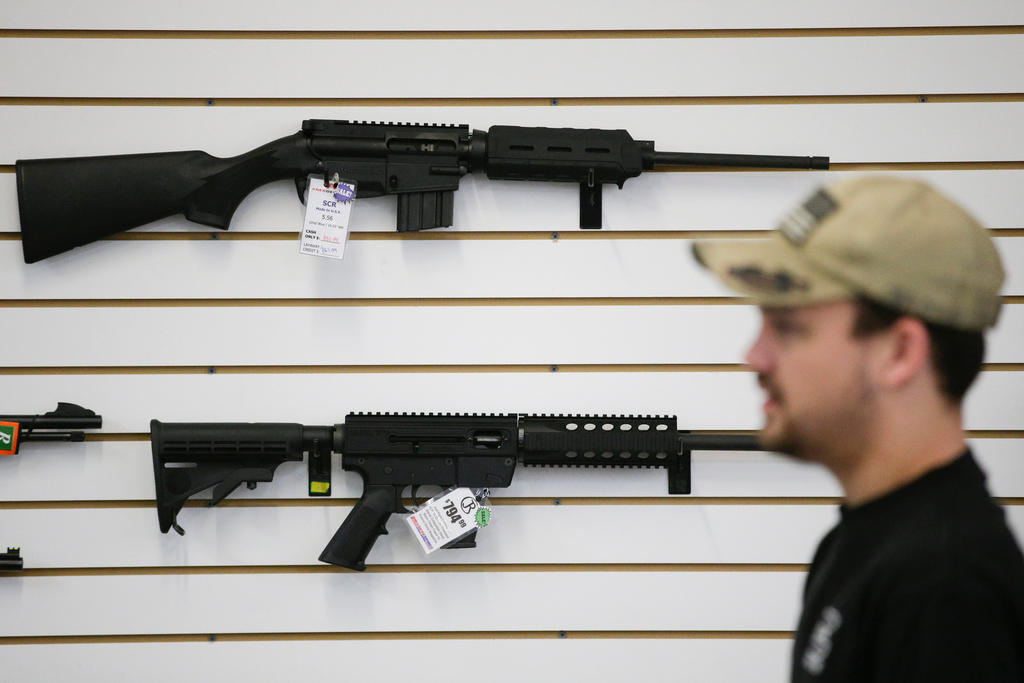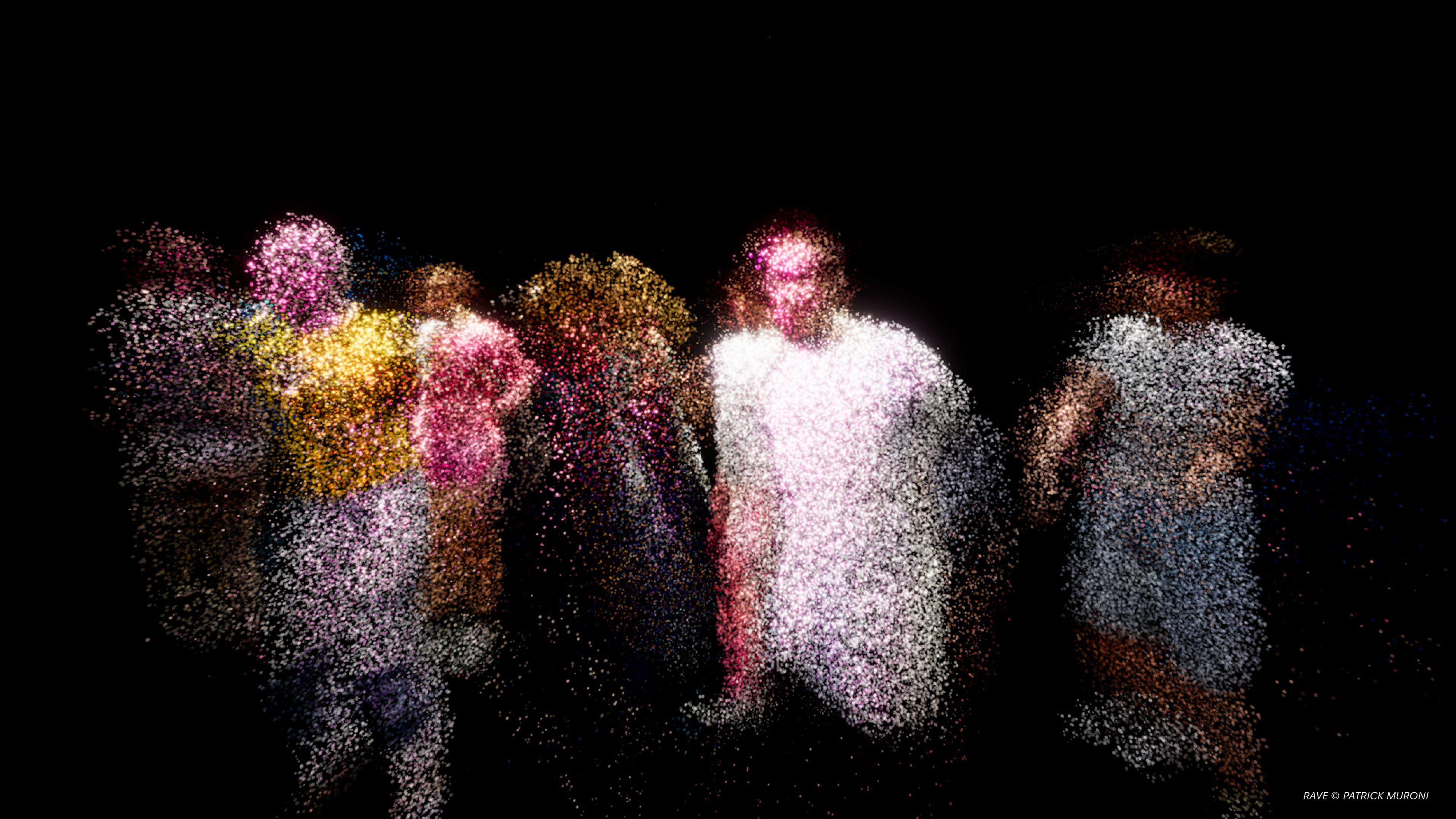
Regulating firearms in gun-loving Switzerland

Switzerland’s gun laws and high rates of gun ownership reflect the country’s deep-seated belief in the right to bear arms and the needs of its militia army. But recent votes and agreements with the European Union have launched debates over who may own which types of guns, and the risks involved.
Until 1999, every Swiss canton had its own gun laws, some more liberal than others. Organising weapons laws under this federalist system led to Switzerland long having among the least strict gun laws in Europe.
Centuries ago, laws in some cantons even required that the groom possess a weapon to be able to marry.
In 1999, the country passed its federally regulated Weapons Act External linkwhich bans certain types of firearms and establishes, nationwide, which ones require permits.
Today, Switzerland has among the highest gun ownership rates per capita among its neighbours and other Western countries.
However, as University of Lausanne criminology expert Martin Killias recently pointed out in the newspaper Le Temps, gun violence and gun ownership do not necessarily go hand in hand.
“What is decisive is not so much the number of weapons as the number of people who have access to a weapon,” he said. “Some people have real arsenals, but what really matters is access to at least one weapon.”
Switzerland, he points out, has fewer people with access to at least one weapon than the United States, for example.
Statistics show that Switzerland has among the higher gun death rates in Western Europe, but mass shootings are rare with two such incidents in the last 20 years. The country’s higher gun death rate can largely be attributed to suicide with guns, since the latest available statistics show a gun suicide rate of 2.74 per 100,000 people, only slightly below the overall gun death rate of 3.01.
What’s allowed under Swiss gun law?
All citizens have the fundamental right to possess guns under the law but may require a license to do so. For example, those looking to acquire a handgun need a permit valid for a maximum of nine months. However, no license is needed to possess firearms for hunting or sport.
All 26 cantons keep track of the guns held within their borders as well as the ammunition. A seller of a hunting rifle, for example, must report the sale and the name of the owner to cantonal authorities.
Ammunition and guns must be stored separately and securely.
Carrying a gun in public requires a license that is only issued if the applicant proves they are qualified. The applicant must demonstrate a need it to protect themselves against existing dangers and must also pass an exam on violent crime laws and proper gun handling before being allowed to carry.
A carrying license allows for the concealed carrying of a handgun. Unloaded weapons being transported to the shooting range or hunting field do not require such a carrying license.
Since Switzerland has a militia army, members of its military may keep their unloaded service weapons at home. However, the ammunition is strictly regulated by the army. A 2011 people’s initiative calling for an end to the practice of keeping army rifles at home failed at the ballot box, but the practice has become less common over the years.
What’s forbidden?
Weapons used for hunting or sport may not be loaded during transport – only immediately before their intended use.
Fully automatic guns are banned outside of military purposes, as are most semi-automatic guns that were once fully automatic.
Heavy machine guns, laser sights, night vision features, silencers and grenade launchers are also not allowed for civilian use.
The Swiss authorities may also ban the acquisition, possession, or trade of weapons to citizens of certain countries if there is a clear danger of them being misused by those individuals or if decisions by the international community and the Swiss foreign ministry require it. Currently, it is illegalExternal link for foreign nationals from Albania, Algeria, Sri Lanka, Kosovo, Macedonia, Bosnia-Herzegovina, Serbia and Turkey to acquire, own or carry weapons and to shoot firearms in Switzerland.
But, as remains the case for several aspects of the Swiss gun law, cantons may intervene on behalf of the people affected and seek special permits for them to be able to hunt or take part in sporting events.
Align with Europe?
Since Switzerland is part of the European Schengen Zone which allows for the free movement of people among member countries, it was recently called on to adjust certain aspects of its gun laws to fall in line with Schengen requirements. This led to a heated debate about Swiss sovereignty and maintaining firearms traditions, with the gun lobby saying it would force a referendum on the issue.
Last month, the Swiss cabinet presented a “light” version of the EU gun legislation for consultation, wherein only certain types of semi-automatic weapons – such as those with magazines capable of holding more than 20 rounds of ammunition – and certain high-capacity shoulder-supported guns would be banned. Their plan leaves out medical or psychological tests for gun owners and participation in a central arms register, which had been part of new EU laws.

More
How do the Swiss deal with firearms? Your questions, answered

In compliance with the JTI standards
More: SWI swissinfo.ch certified by the Journalism Trust Initiative





























You can find an overview of ongoing debates with our journalists here . Please join us!
If you want to start a conversation about a topic raised in this article or want to report factual errors, email us at english@swissinfo.ch.